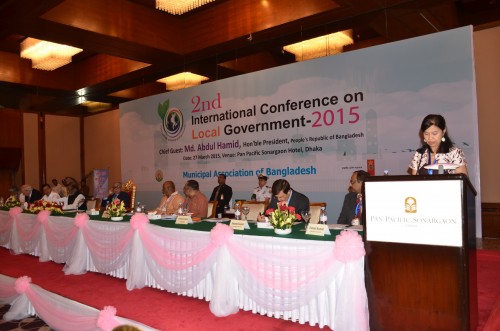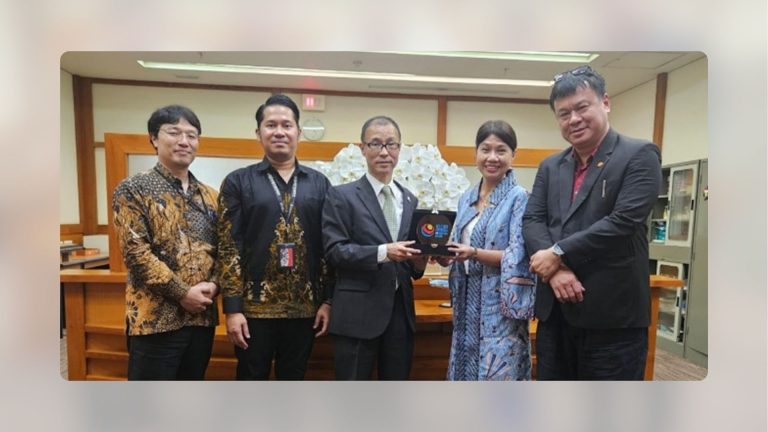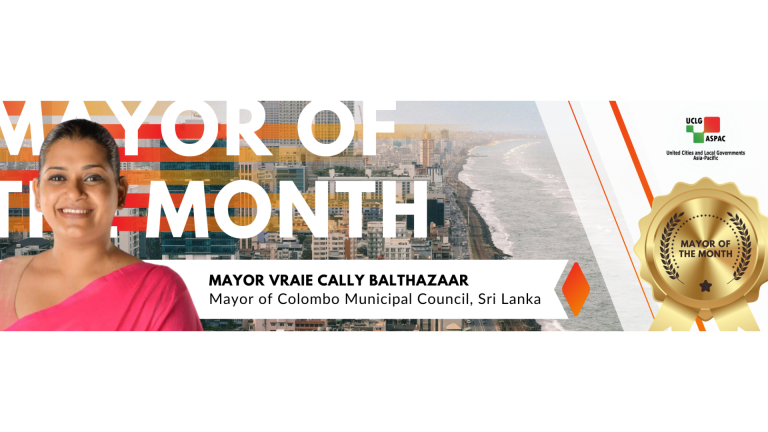ON 28 March 2015, in Dhaka, the capital of People’s Republic of Bangladesh, on the occasion of the 2nd International Conference of Local Government, proclaim the MAB (Municipal Association of Bangladesh) Declaration as below:
The Honorable President, People’s Republic of Bangladesh inaugurated the 2nd International Conference on Local Government.
The conference is organized by Municipal Association of Bangladesh.
We, the representatives of local governments including the Municipal Association of Bangladesh (MAB) as host along with the Commonwealth Local Government Forum (CLGF), United Cities and Local Government Asia Pacific (UCLG-ASPAC), All India Institute of Local Self Government (AIILSG), Cities Network Campaign (CNC), Asian Mayor’s Forum, Local Government for Sustainability (ICLEI), the Hague Academy for Local Governance, City-Net and national associations of local government within the region, having met at Dhaka, Bangladesh resolve accordingly.
We recognize that this successful conference has furthered the objective to make Local Government institutions (LGIs) of Bangladesh decentralized, democratic and sustainable and gender friendly to:
- Engage national and international academia, development actors, policy makers, legislators and civil society in developing and sharing knowledge based on inter-governmental relations, decentralization – with focus on promotion of local government;
- Make LGIs transparent, responsive, accountable for ensuring good governance and inclusiveness and recognize that the media and the civil society can play an important and positive role if provided with access to information;
- Raise awareness among all government bodies and elected representatives in all spheres of government.
To enact this,we will prioritize sustainable urban mobility solutions which cater for the needs of all citizens and advocate for the more equitable use of urban space by promoting urban design whichintegrates human powered, environmentally friendly, and public or shared means of mobilityand transportation. We will assert the need to enlarge and enhance the activities under free and fair mobility.
We recognize that issues with climate change are particularly important for this region and need to be addressed collaboratively by central and local government.
We will look to measure performance beyond GDP and will encourage initiatives which emphasize happiness, quality of life, health, inclusivity, safety, education, culture, green employment, and good governance. We will provide opportunities for increasing community engagement in decision making. We will try to expand the understanding between generations, and in particular, establish measures such as adjustments to infrastructure in cities to cope with the needs of the elderly by improving their accessibility. At the same time to recognize the responsibility for children and youth.
We recognize that the local government should be taking full benefit of modern technologies including the ICT to promote e-Governance.
We recognize the role of local government as facilitators of local economic development. Local governments must be supported by central government in resourcing, enabling legislation and shared policies. All spheres of Government should be seen as partners supporting their common citizens’ interests. Resourcing also includes capacity building and development of elected representatives and officials in local and central government in order to achieve maximum outcomes including the exchange of experiences and knowledge through regional cooperation.
We strongly ascertain the principle of fiscal empowerment of local government and increasing local government’s autonomous role, recognizing this requires transparency and full accountability to citizens. That local government needs to maintain a confidence of their citizens by ensuring that their process of revenue collection is fully transparent and citizens should have the ability to contribute to policy priorities and have full access to the budgets and to the income and expenditure of the local government.
The conference was set in the wider context of the post- 2015 development agenda. We welcome the progress achieved already to localize the sustainable development goals and to ensure accompanying localization of resources and call for this to be confirmed at forthcoming UN meetings scheduled in 2015. Central government and local government must join to develop national goals and strategies with which they can collaborate to achieve the maximum benefits for their shared citizens.
The CLGF meeting in Colombo and UCLG ASPAC’s endorsement of a similar programme at its meetings in Sri Lanka and Taipei ensures that there is agreement to establish a forum of local government in South Asia for exchange of policy and interaction with SAARC.











